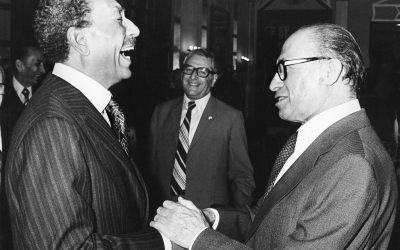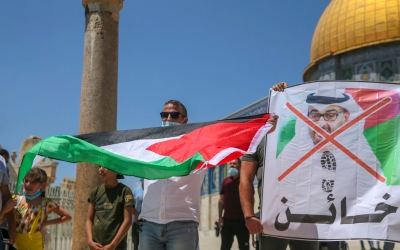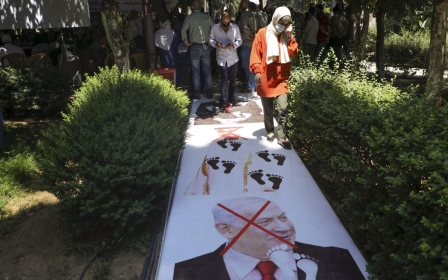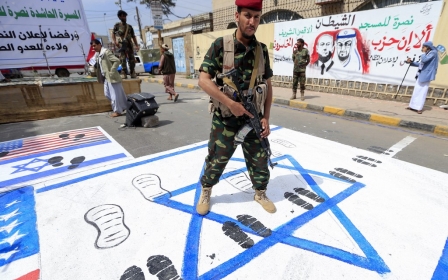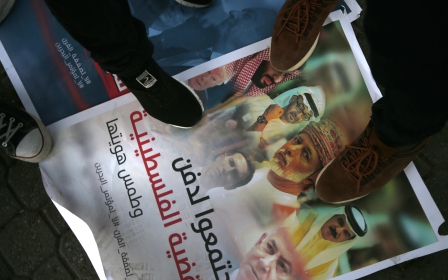Israel-UAE deal: Normalisation raises concern over change in status of Al-Aqsa - Report

Normalisation of relations between Israel and the United Arab Emirates (UAE) could have significant impacts on the sensitive status of Al-Aqsa Mosque, a report by Israeli NGO Terrestrial Jerusalem has warned.
The report challenged the wording in reference to Al-Aqsa in a joint statement by US President Donald Trump, Israeli Prime Minister Benjamin Netanyahu and Sheikh Mohammed bin Zayed, the crown prince of Abu Dhabi, on 13 August.
The statement, which has been condemned by Palestinians across the political spectrum, says that "all Muslims who come in peace may visit and pray at the Al Aqsa Mosque, and Jerusalem's other holy sites should remain open for peaceful worshippers of all faiths".
After the 1967 war, Israel and Jordan, the custodian of Al-Haram al-Sharif compound, agreed that while Jews are allowed access to the site, they are not allowed to pray there.
That status quo has withstood many challenges since.
New MEE newsletter: Jerusalem Dispatch
Sign up to get the latest insights and analysis on Israel-Palestine, alongside Turkey Unpacked and other MEE newsletters
However, Terrestrial Jerusalem, an organisation that tracks developments in Jerusalem that could impact political processes or spark violence, argues that the terminology used in the joint statement is an intentional attempt to open up the Temple Mount for Jewish prayer and ultimately change the status quo.
"It is not too late to insist that this wording be removed and that there be a renewed commitment, unambiguous in its clarity, by both Israel and the United States to the traditional interpretation of the status quo, and specifically regarding Jewish prayer on the Mount," the report said.
Al-Aqsa, the third-holiest site in Islam, is housed in the 14-hectare Al-Haram al-Sharif compound (Noble Sanctuary), known to Jews as the Temple Mount.
The joint statement, the report said, speaks of access to "Al-Aqsa Mosque," rather than Al-Haram al-Sharif, and while Israel defines Al-Aqsa as the structure of the mosque, Muslims define it as the entire esplanade of Al-Haram al-Sharif.
"Consequently, according to Israel (and apparently to the United States), anything on the Mount that is not the structure of the mosque is defined as 'one of Jerusalem's other holy sites', and open to prayer by all and open to prayer by all – including Jews."
Loss of Jerusalem
Terrestrial Jerusalem also highlighted that the joint statement does not mention the Waqf, the Islamic organisation that oversees the holy site, or its autonomous role as the agent of Jordanian custodianship, potentially eroding Muslim authority over Al-Aqsa.
The US-brokered deal has met with condemnation from Palestinians and their leadership. Palestinians have largely dismissed it as tantamount to "treason" and "a stab in the back".
The report states that the normalisation between the two countries could have severe ramifications on historic sites in Jerusalem.
"It is almost inevitable that those interested in normalising relations with Israel will be accused of having contributed to the loss of Jerusalem to the Arab and Muslim worlds."
Last year, an Israeli minister called on settlers to continue entering the Al-Aqsa compound, days after clashes between Palestinians and Israeli police broke out at the site.
The status of Al-Haram al-Sharif compound is one of the most sensitive issues in the Israeli-Palestinian conflict.
The compound served as the first Qibla, the direction towards which Muslims must turn to pray, before that was changed to Mecca, in Saudi Arabia.
It is also the holiest site in Judaism, believed to be the location of the Jewish temple that was destroyed 2,000 years ago.
The area has been a flashpoint for years, as Muslim worshippers frequently face harassment when entering the mosque due to security measures imposed by the Israeli government.
Middle East Eye delivers independent and unrivalled coverage and analysis of the Middle East, North Africa and beyond. To learn more about republishing this content and the associated fees, please fill out this form. More about MEE can be found here.


